#013 Slow-Tech & Quiet Activism
What if staying online didn’t mean always performing? In this issue, I explore slow-tech, quiet activism, and how small shifts, like redesigning your phone or self-hosting, can help reclaim attention and presence in a hyper-connected world.

It's been a while, Hotpot readers.
I thought I'd be posting more during this sabbatical. But as this space slowly began leaning into questions around technology and behavior, sharing a journal felt off. Nothing felt urgent enough to share. Until something started to itch.
Stillness
If you've been following along, you'll know that what was meant to be an adventurous year didn't go to plan. A bike crash (not part of the plan) forced me to stop and slow down before I even got started.
I ended up staying in Pantelleria, a small island in the middle of the Sicilian Channel. No grand tour. Just wind, rocks, and time. Terrifying, at first. But in the end, I couldn't have asked for anything better.
The island became its own kind of teacher with its boundaries, unpredictable extreme weather, and slowness. When you stop scanning the horizon, you start noticing what's under your feet. You scratch the surface, then start digging. Let the stillness do its work.
Presence vs Performance
Walking the island's trails, I noticed a growing tension between being and sharing online. Between solitude and visibility. Broadcasting my daily life on social media did not feel right. It felt vain.
This is where this Hotpot issue begins. In the space between the desire to be present and the pressure to be seen.
This piece is an exploration of what it means to be digitally present without performing, and how slowness can become its own kind of rebellion.

Stay with the problem
Visibility is survival. Work opportunities, connections and community, identity. They all live online, too. Most of us simply can't afford to vanish. Our online presence is tangled up with how we connect, work, learn, and participate.
Social media isn't inherently empty and it can genuinely connect and inspire. The problem arises when sharing becomes reflexive and memetic rather than reflective.
Quiet activism means pausing to ask: why am I sharing this? How is this adding value to me or to others?
Quiet activism shouldn't become a comfortable escape. It should be a considered stance.
The real challenge is to build alternatives that allow more people to participate differently, not just to disappear. So maybe walking away isn't the move.
Maybe the better question is: what does it mean to stay? Can we stay differently? Can we demand better from the systems we're still inside?
In a world that rewards noise, what does it mean to rebel quietly? What if we start challenging the idea that our presence and activity must always be proven? What if we try disconnecting from networks and reconnect with moments?
Mirrors & Molds
Social media blurs the boundaries between consumption and production. Our smartphones become both mirrors reflecting who we are and molds shaping who we become.
I started wondering: Was the sabbatical I imagined ever mine? the one filled with landscapes and long routes. Was that someone else's dream? Or worse, one shaped by algorithms?
The more I thought about it, the more absurd it seemed. I wanted to escape the discomfort. But abandoning platforms entirely felt both privileged and impossible.
Slow-Tech as Resistance
The Slow Movement can be traced back to food. In 1986, Carlo Petrini founded The Slow Food Movement in reaction to fast-food culture, sparked by the opening of a McDonalds opening in Piazza di Spagna in Rome. The movement not only aims at defending biological and cultural diversity, but also at educating and influencing society.
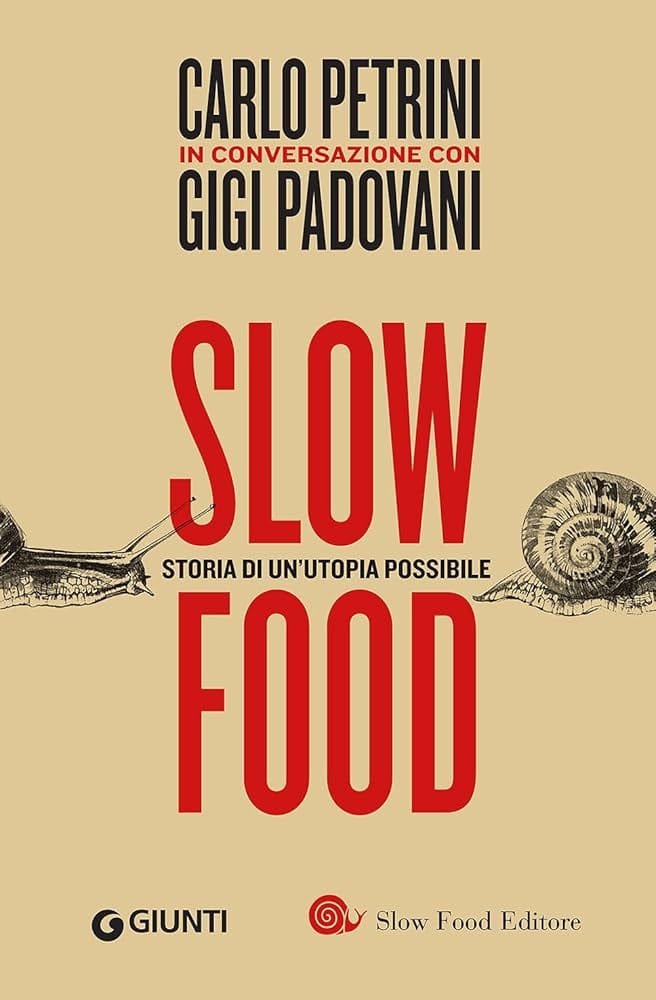
Slow-tech proposes a similar engagement with technology, inviting to "slow down" to cultivate meaningful interactions, authentic communities, and shared well-being. While by some slow movements are considered elitist (be wary of it), I find that their underlying narrative can inspire action that leads to impact.
Why slow is an important value in our times?
We are tired, aren't we? Digital fatigue is a widespread phenomenon and to engage more intentionally with digital technologies is one of the possible ways we can gain more control on our relationship with technologies and beyond.
Passive engagement fills the void in our days. When was the last time you allowed yourself to be bored? I don't remember it, because I am constantly stimulated. How can we balance engagement with critical thinking and creativity?
Is de-platforming the answer? Probably not. Decoupling the act of recording, from the act of broadcasting though, might help us minimize the type of attention that a moment deserves from the attention that platforms demand.
This is not anti-tech nostalgia. It's an invitation towards slow-tech awareness.
Refusing technology entirely can be escapist. Demanding better relationship with it, this is an act of agency. Looking critically at what tech enables is an act of care and responsibility. Just because we can share everything at anytime, does not mean we should.
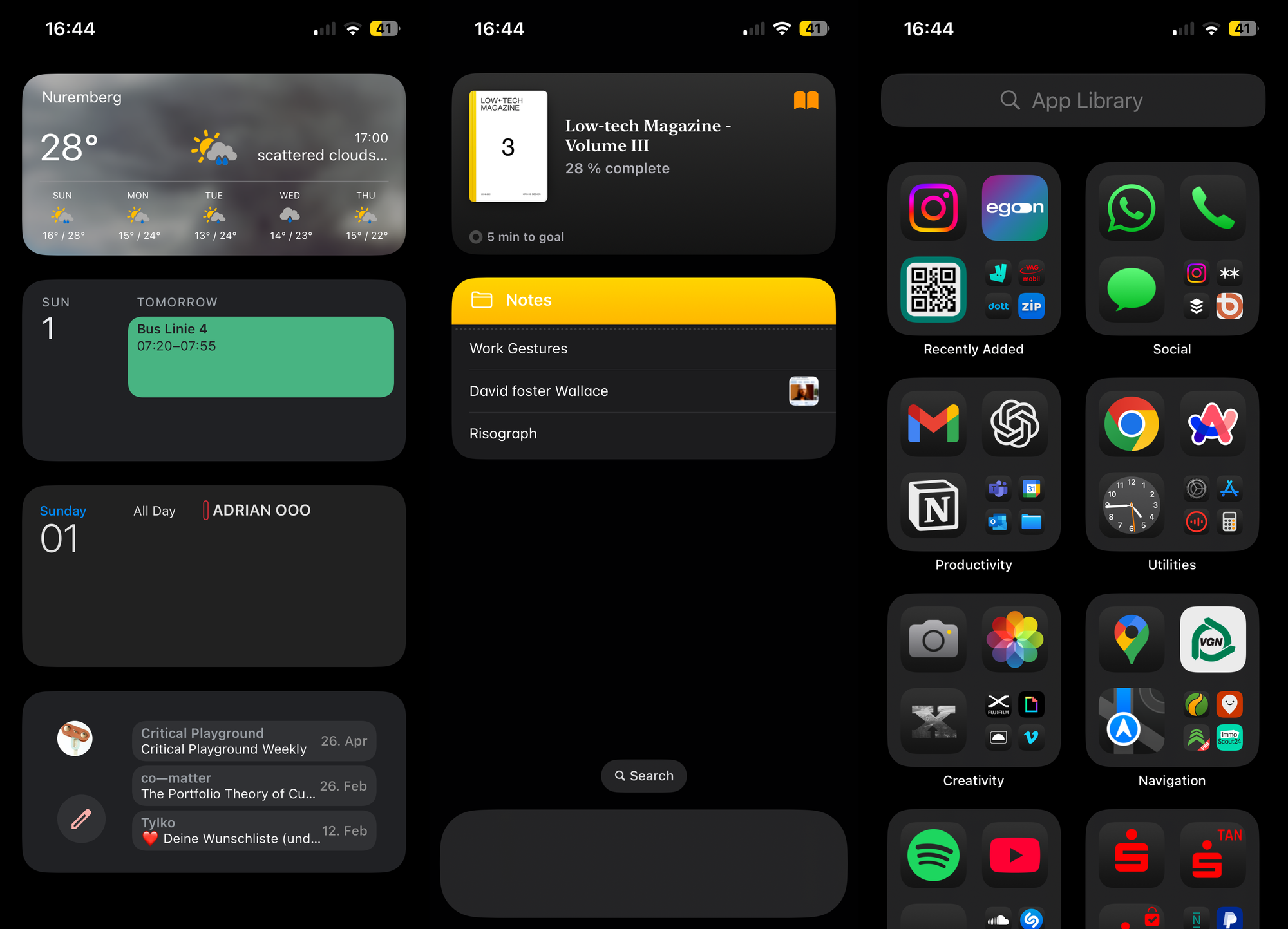
Platforms Reward Noise
The platforms we use are built for speed, scale, and sameness. They reward performance, not presence. Creative work starts bending to algorithms. Expression becomes engagement. Visibility becomes value. Within this system, slowing down, owning your tools, and welcoming friction stops being inefficient. It starts to become a form of resistance.
How You Publish Matters
I first felt this tension years ago, back in design school.
One of my teachers, an anarchic mind shaped by the protests of 1968, used to say that a blank HTML page was a space for resistance. A place to claim authorship. A place where you set the rules and your own terms. This is my last big project before retiring, he said, when staring at blank webpage, wondering about its possibilities. That stayed with me and I am online at www.andreabrena.com since 2009. Thank you, Peter Thijs.

It’s hard not to notice how far we’ve drifted. Today, a personal website carries less weight than your follower count.
We're encouraged to produce specific content, post with frequency, and accumulate. But the rules aren't ours. And the things we publish can disappear at any time, along with the platform that hosted them. Having your own website or publishing platform is a durable act of claiming space and authorship beyond algorithms and trends. It is quiet activism.
Quiet activism isn't about doing less. It's about doing differently. It resists the demand to always be seen, liked, boosted. It asks different questions: What is this for? Who benefits? Who decides the pace?
Sometimes it looks like disengagement, but it's not. It's engagement on new terms. Terms that aren't designed to extract attention, but to hold it with care.
A Self-Hosted Space
This newsletter, my quiet corner on the internet, is also part of the practice. It isn't optimized. It's not designed to grow. I don't track clicks or chase trends. I write, and you read if and when you choose to. That feels rare. That feels fair.
Hotpot is a space where I try to stay with questions rather than chase answers. A space that privileges presence over push. Each of you is here on purpose, and that feels more meaningful than any like or share ever did.
Rebellion Can Be Collective
The resonance of quiet activism can grow exponentially if it is collective. I think of mutual aid groups, community libraries, independent repair workshops, small walking clubs that reclaim public space.
Quiet activism thrives not in isolation but in thoughtful communities. These efforts rarely go viral. But they're steady. Local. Sustained. They don't seek attention. They seek impact. And often, they work better than the big campaigns designed to impress. Rebellion doesn't always need to be loud. Sometimes, it just needs to last.
Quiet Tools, Loud Intentions
At first, stillness felt uncomfortable, shameful, even. Watching others move forward, show up, share their best moments only sharpened my own sense of inadequacy.
But over time, something shifted. Not a resolution, exactly, more like a quiet rerouting. I began to see that simply being present, without performance, was an achievement in itself.
In a world that glorifies noise, clarity can sound like silence. And silence, when chosen, can be radical.
Quiet tools carry loud intentions. Whether it’s walking, writing, self-hosting a website, a blog, a workshop, a community of practice, or simply choosing not to perform, the power lies in the choosing.
Rebellion begins when we decide how, and for whom, we show up.
I choose to stay. To stay here, on my own terms. Without algorithms. Without external pressure. Quietly and present.
Others Do It Better
And I'm not alone in this self-publishing endeavour and there is who is a true inspiration to me.
- Craig Mod has built his own rhythm (and membership platform) around long walks, newsletters, and self-funded books. A slow-tech project of his, the SMS Book.
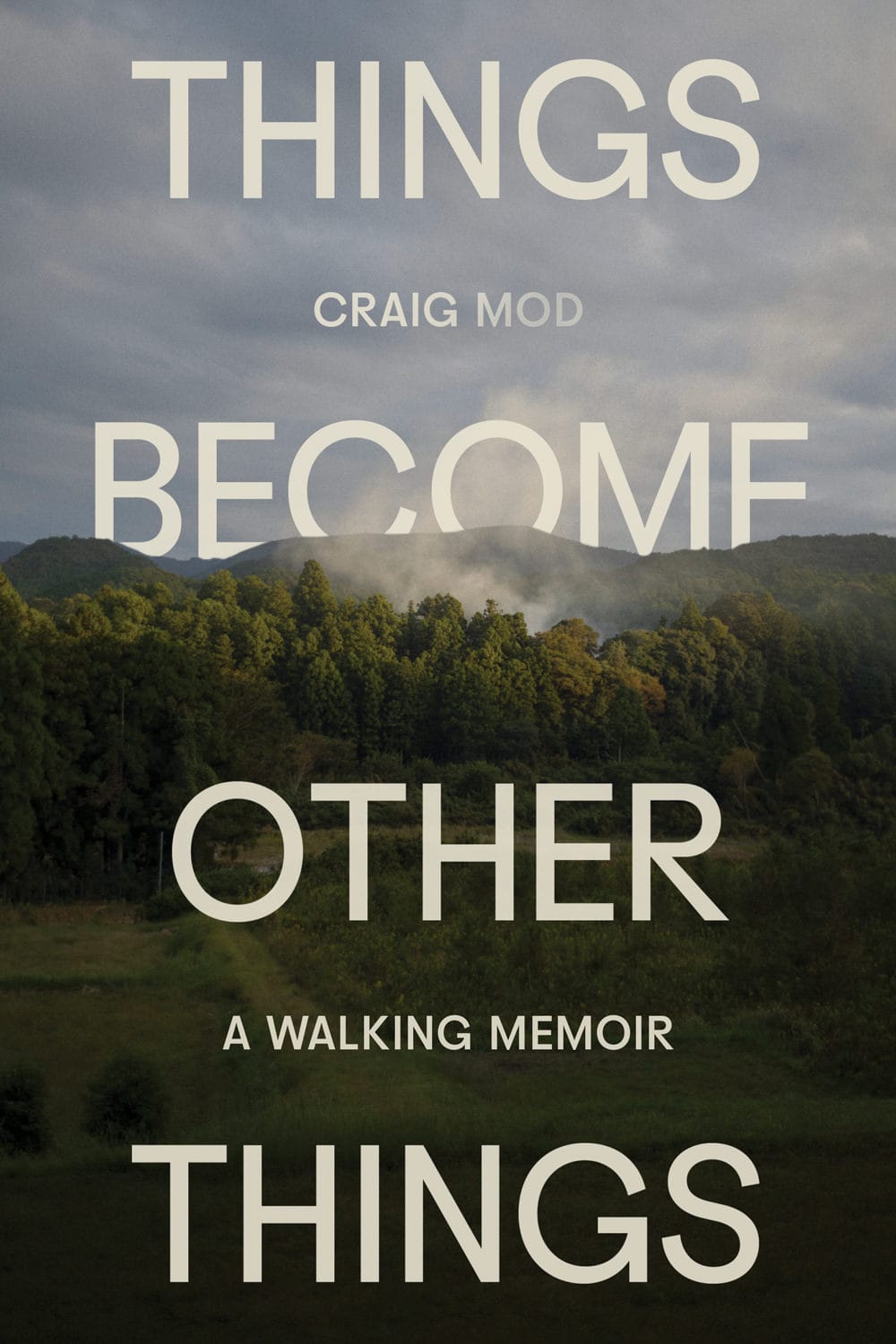
- Low Tech Magazine runs on a solar-powered server. When the sun doesn't shine for too long in Barcelona, the site goes offline.
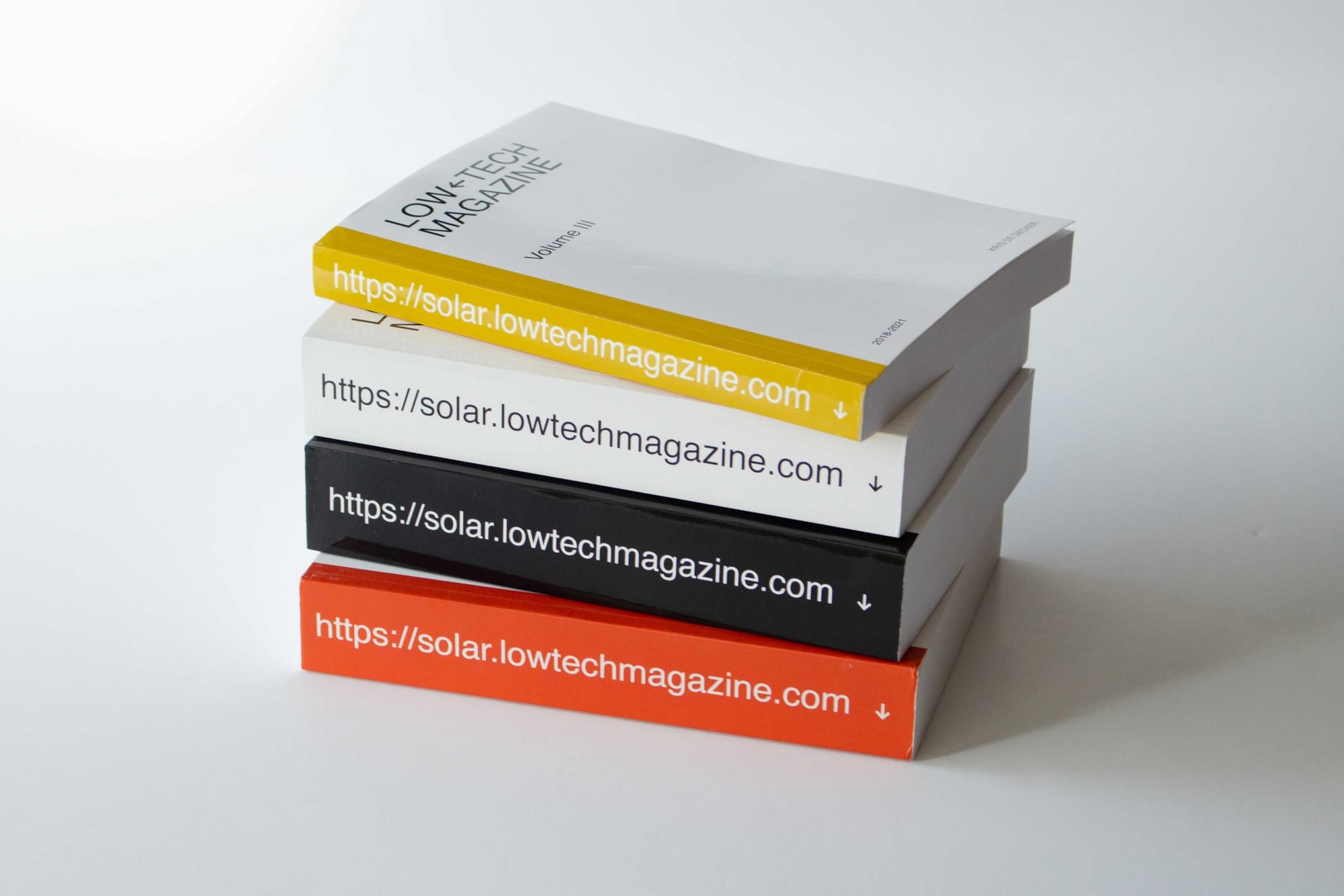
- Openstructures is a design platform built on a 4x4cm grid where everyone designs for everyone. You can upload or download interoperable 3d models and parts to make whatever you like.
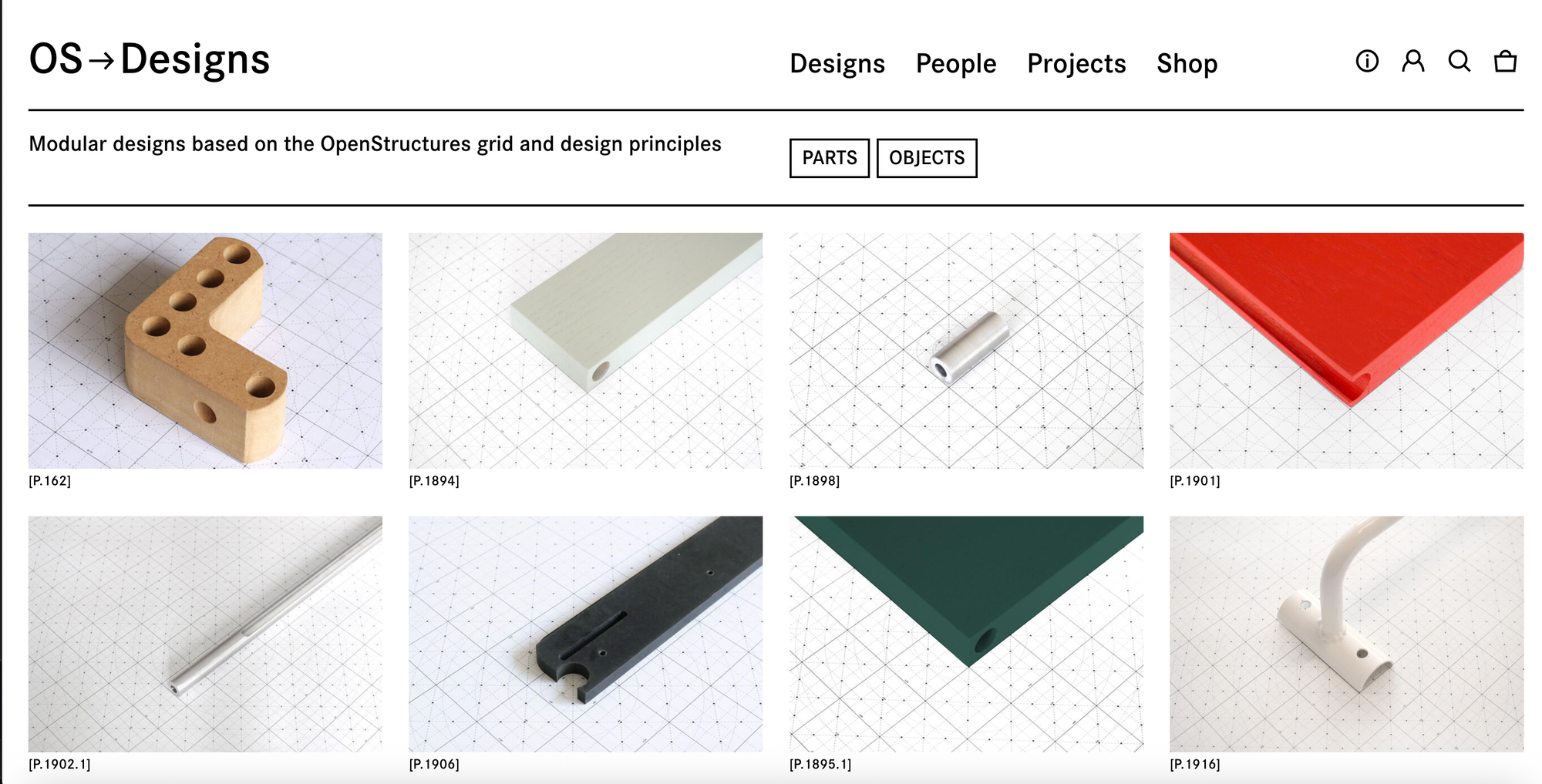
- Jonas Görgen (ex Openstructures) tackled excessive shower consumption with a simple and low-tech solution: a mist shower kit, that I absolutely want to build and test in Pantelleria, where water for each household is collected in a rain water-reserve.
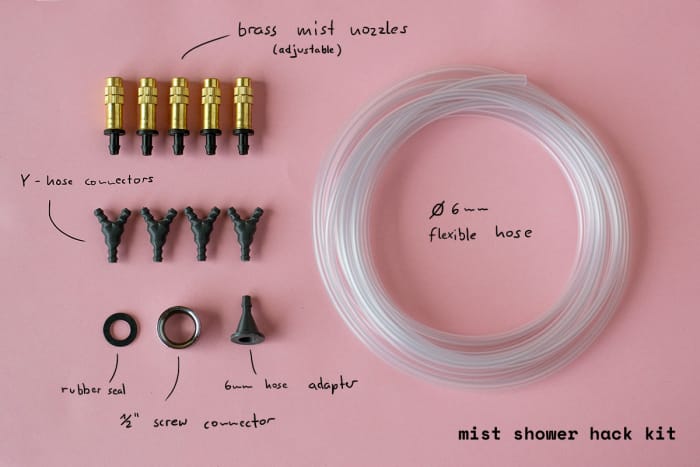
- Il gioco delle favole (The fable game) by Enzo Mari. Enzo Mari understood that meaningful experiences don’t come from passive consumption but active participation. He criticized how passive engagement would harm creativity, and instead offer a modular toolkit that enable kids to invent and create stories. Like Enzo Mari, Bruno Munari had a similar approach in designing objects and books that would spark curiosity, creativity, and participation in both kids and adults. Here my two lifelong design heroes.
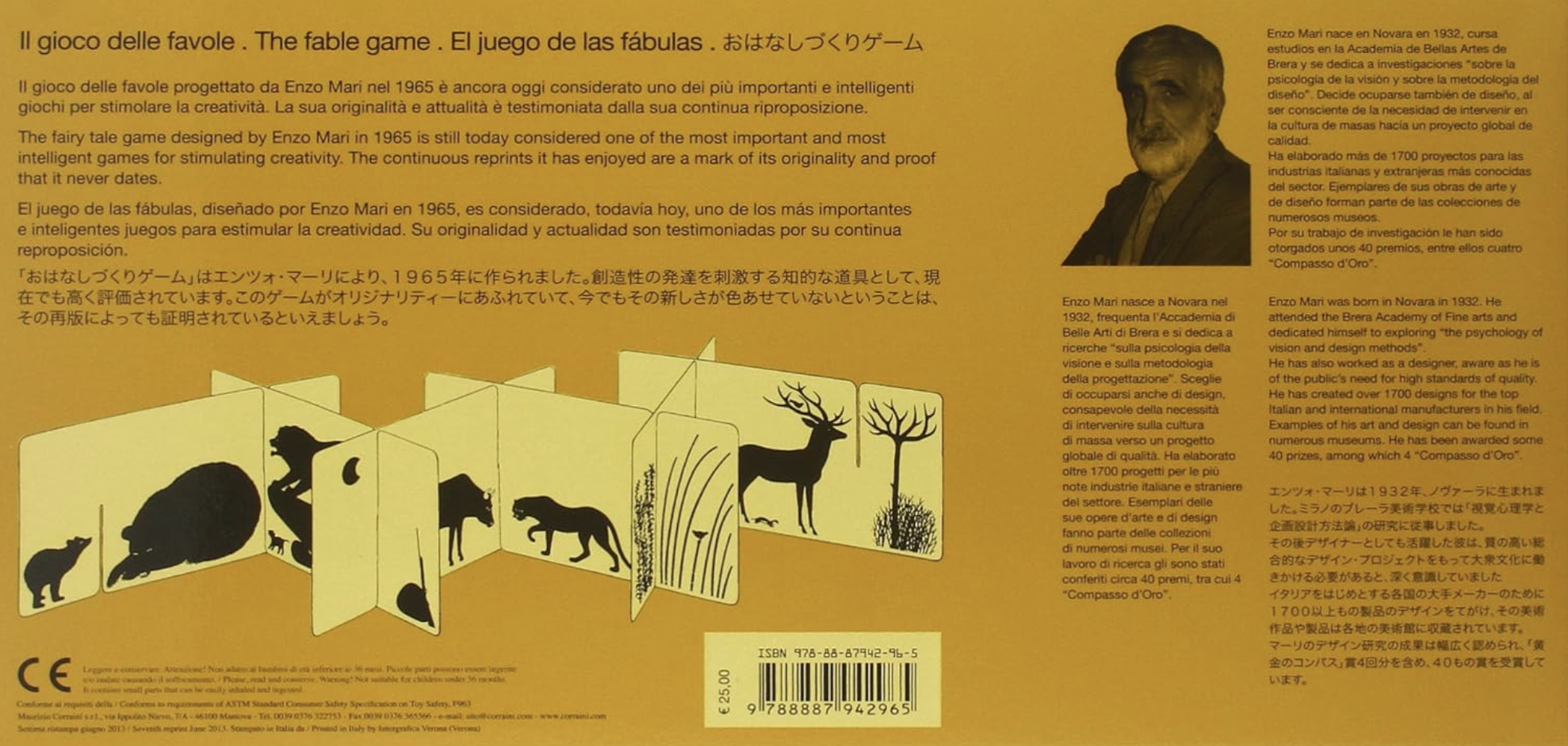
These projects aren't nostalgic. They are intentional. They treat limits not as constraints but as values. That, too, is a kind of protest.
More Reads
- From “Slow Technology: Designing for Reflection,” this early manifesto (2001) proposes that not all tech needs to be fast or frictionless. Slow tech is designed to encourage thoughtfulness, contemplation, and long-term engagement, tools that grow with us rather than distract us.
- The calm technology Manifesto
Coined by Mark Weiser and John Seely Brown, calm technology is about designing tools that inform but don’t demand. The manifesto promotes tech that respects our attention, operates in the periphery, and amplifies human abilities instead of overwhelming them. - Calm Technology by Amber Case. Technologist and anthropologist Amber Case expands on the idea that the best technology is unobtrusive, enhancing our lives without overwhelming our senses. Calm technology, she argues, should respect our attention, operate in the background, and empower without demanding.
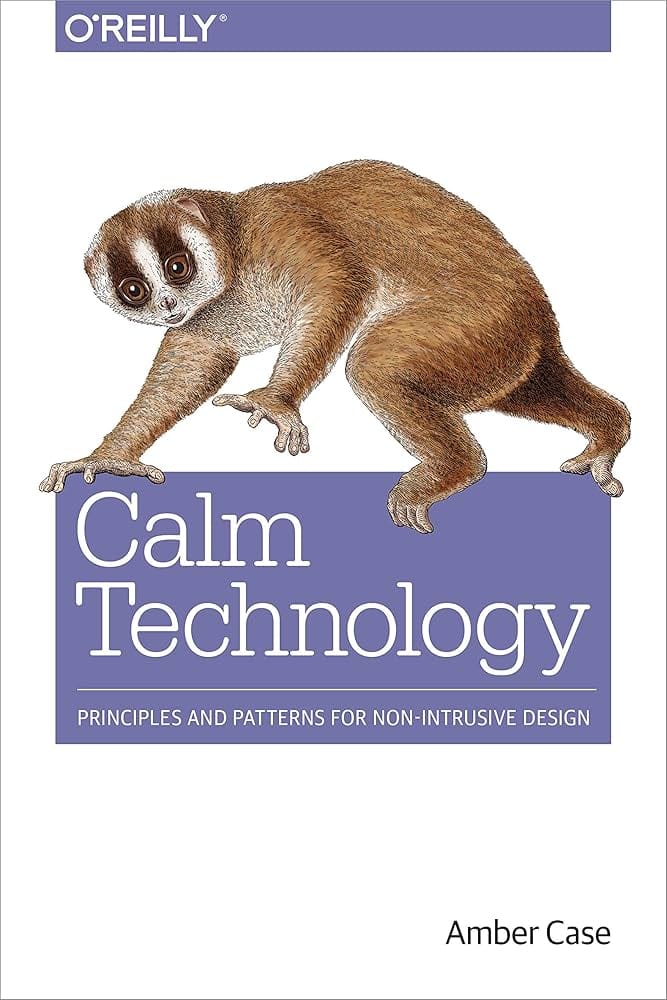
- Tools for Conviviality. Published in 1973, this manifesto calls for tools that serve individuals and communities rather than dominate them. Illich champions technologies that promote autonomy, creativity, and collective well-being, offering a timeless lens for rethinking how we design and engage with systems today. Downloaded from the Internet Archive, another project worth knowing if you don't already.
- Digital Minimalism by Cal Newport. A practical philosophy for reclaiming focus and intention in a hyper-connected world. Newport advocates for a “digital declutter”. A conscious reduction of optional technologies to create space for deeper work, richer relationships, and more meaningful leisure.
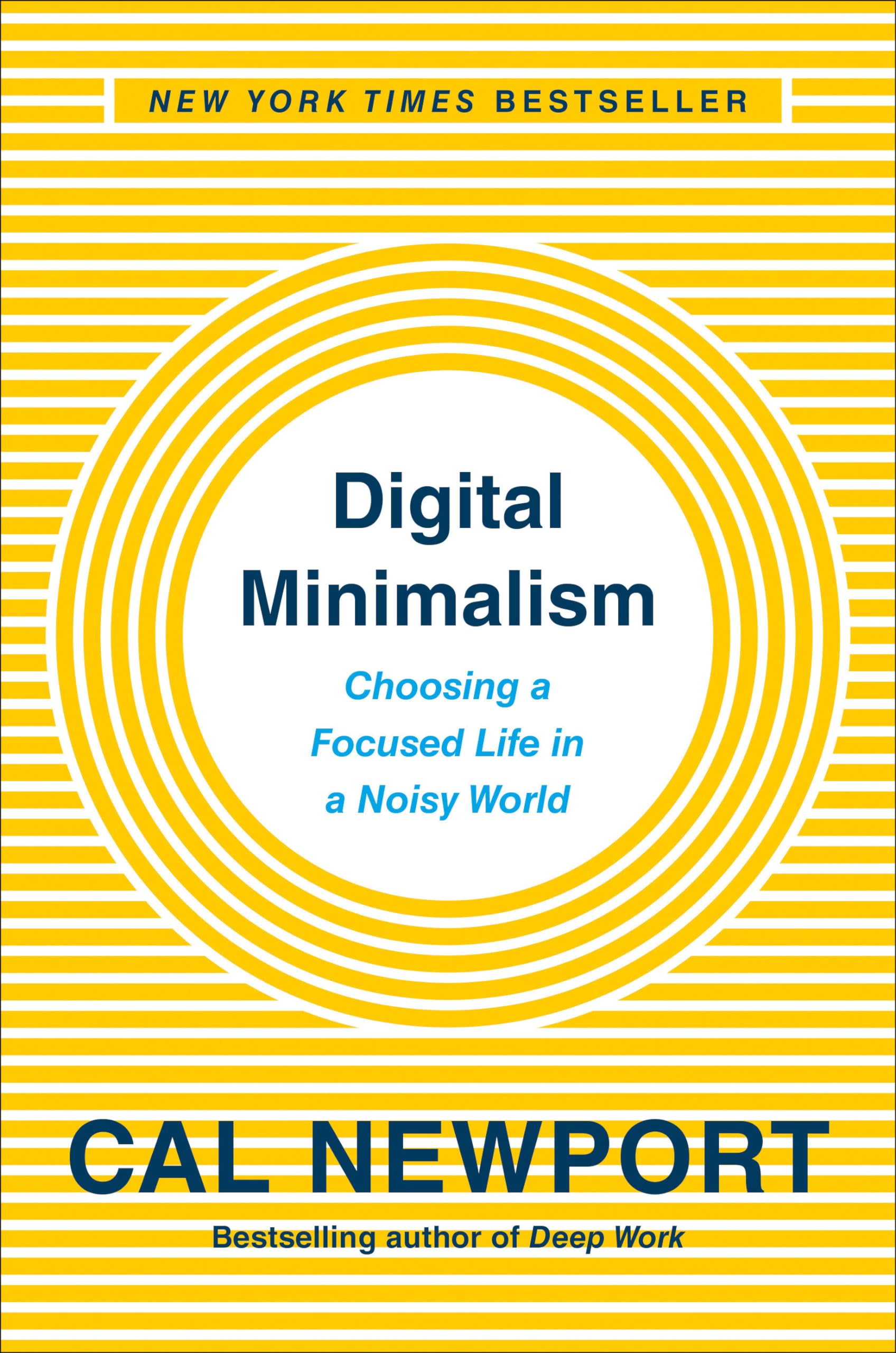
- Center for Humane Technology. A nonprofit challenging the harms of persuasive tech and social media. Known for The Social Dilemma documentary, it promotes design practices that prioritize human well-being over engagement metrics.
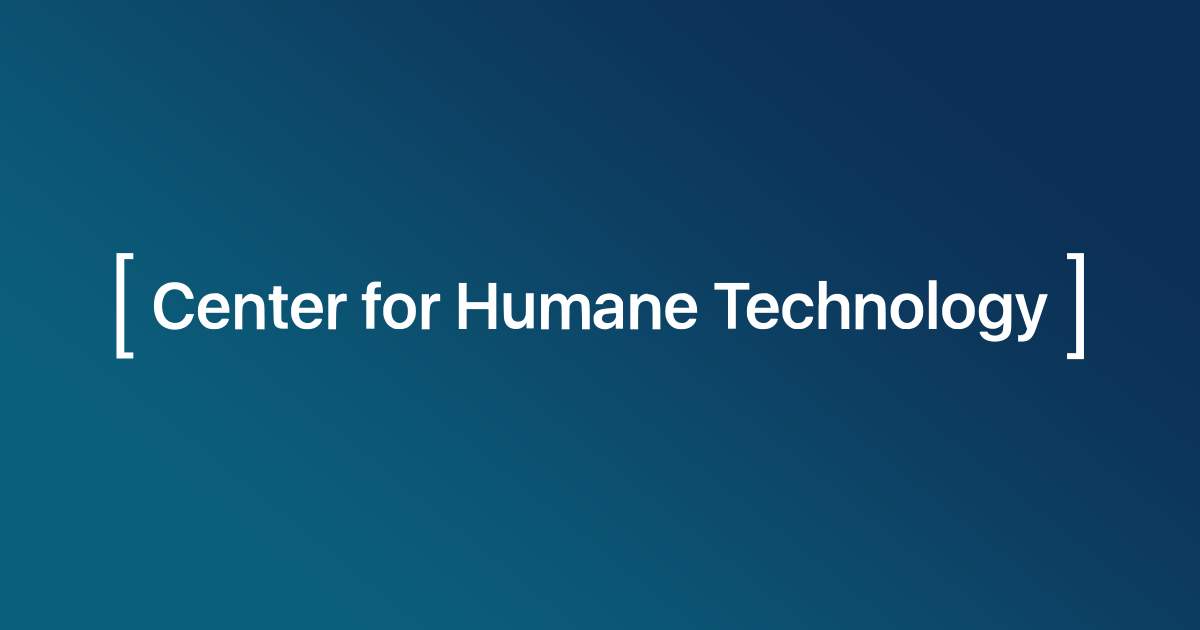
Thank you for reading this Hopot Issue. It's been in the making for quite some time and I am happy it finally reached you.
If you have been forwarded this email by a friend, considering subscribing to Hotpot. Thank you!
🤞
Andrea

